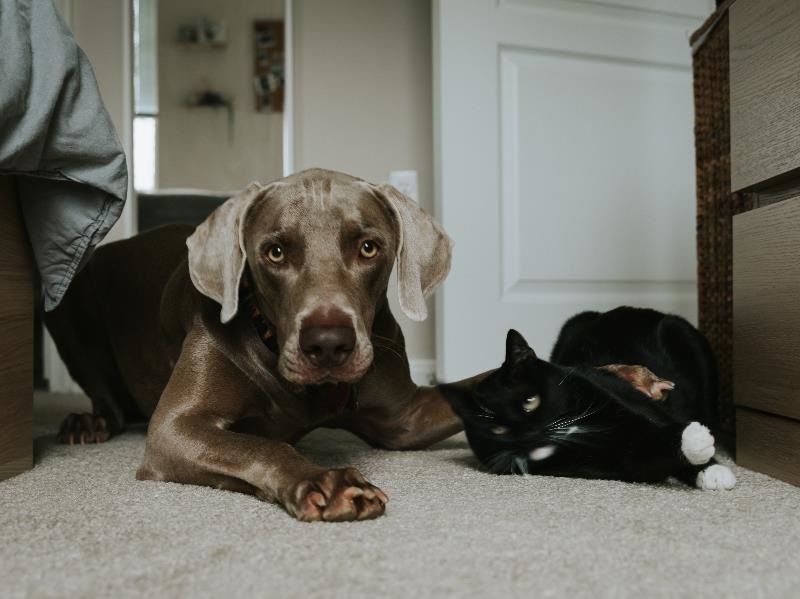Program CLOSED due to all funds being exhausted. We are no longer taking applications to be waitlisted. Those on current waitlist will be notified first if availability arises from cancellations.
A Subsidised Companion Animal Desexing & Microchipping Program is being offered to eligible residents within our Municipality to encourage responsible pet ownership through desexing and ensuring animals are microchipped and registered at the same time.
The program is made possible through the Victoria State Government’s Animal Welfare Fund Grants Program with the backing of our local Veterinary Clinics.
The program will help subsidise the cost of having your companion dog or cat desexed and if they are not microchipped and/or registered this will be included.
Free registration is provided under amnesty, no fines will be issued for unregistered animals accepted to this program.
Cats and dogs can produce offspring from an early age and can have many litters of kittens or puppies during their lives. By desexing your pets you can help reduce the numbers of unplanned and unwanted cats and dogs. Desexing your pet can also have a positive health and behavioural advantages, such as reducing the incidence of roaming, disease and aggression in cats and dogs.
This Subsidised Companion Animal Desexing & Microchipping Program is available from 1st February 2024 to 31st July 2024 or until funds are exhausted. Council wants to reduce the population of stray and unwanted cats and dogs in our municipality and see this program as first step.
Rural City of Wangaratta residents who are eligible and wish to take part in this program can do so by filling out the application form and obtaining a Voucher from the Customer Service at 62-68 Ovens Street, Wangaratta.
Eligible residents must live within the Rural City of Wangaratta municipality and hold one of the following cards;
- Pension
- Health Care
- Low Income Health Care
- Commonwealth Seniors Health
- Veterans Affairs Card
Cats - $60
Dogs - $150
Council will waive the initial registration fees for non-registered animals where the pet is desexed as part of the program. The free registration is provided under amnesty, NO fines will apply to unregistered cats & dogs accepted to the program.
Ongoing/renewal registration fees will be at owners costs but will be lower – as applies to all desexed dogs and cats.

- Visit Council’s Customer Service Centre in-person at 62-68 Ovens Street, Wangaratta and fill out the registration form and pay the co-contribution amount for your animal (Cat: $60 and Dog: $150)
- A member of Council’s Customer Service team will issue you with a voucher form that will be valid for one month.
- Call your preferred Veterinary Clinic and make an appointment stating that you have a voucher and provide details.
- Transport your animal to the selected Veterinary Clinic for the appointment and present your voucher on arrival.
- Adhere to the aftercare requirements for your pet as prescribed by the vet to ensure your animal full recovers from the procedure.
For those with mobility issues who cannot attend in person please call Rural City of Wangaratta Customer Service on 03 5722 0888 to discuss your options to participate in the program.
Every year, Council’s pound services takes in a number of cats, kittens, dogs and puppies that are either strays or have been surrendered and need to be re-homed largely from unwanted litters or aggressive behaviour.
Desexing is an effective strategy to reduce strays and prevent unwanted pregnancies in dogs and cats.
Aside from preventing accidental litters, there are many health and behavioural benefits to de-sexing.
- Desexing commonly reduces behaviour problems such as roaming, aggression and urine marking in males.
- In females it prevents mating behaviour and false pregnancy. Reducing the desire to roam also reduces the risk of being in a traumatic accident such as being hit by a car.
- Desexed animals are generally less likely to get diseases and certain illnesses such as mammary cancer and uterine infections in females and prostate problems in males.

On arriving home you should keep your pet warm and comfortable by providing a soft clean bed, ideally in a quiet and warm room. Unless otherwise instructed, your pet should be offered a drink of water and a small amount of their regular food. Ensure your pet has access to their litter tray or access to a place for their toileting needs.
Please keep your pet indoors for at least 5 days following the surgery, to minimise their level of activity and minimise damage to the surgery site. You should discourage any jumping or activity that will cause excessive stretching of the wound, especially during the first five days post-operatively.
Your pet may have had a tube placed in their trachea (windpipe) during the anaesthetic - this can occasionally cause mild irritation and a slight cough as an after-effect. If so, it will settle down over the next few days, however should it persist then contact your local veterinary practice.
It is only natural that your pet may try to clean the operation site, however, if this becomes excessive, then there is a danger of the stitches being pulled out or infection being introduced into the wound. If you have purchased an Elizabethan-type collar to prevent your pet chewing then please ensure it is used, otherwise please contact your local practice, and ask for one. Not surprisingly, many pets find these collars strange at first and will attempt to remove them. However, after a short period most animals will settle and tolerate wearing the collar. Once accustomed, it is better to keep the collar on permanently, rather than to take it on and off. Remember - it only takes a few seconds of unobserved chewing for a pet to undo its stitches. If your pet does succeed in removing any of its stitches, then please call your local vet as soon as possible.
The wound should normally be clean with the edges together and the skin a normal or slightly reddish/pink colour. In pale skinned cats bruising may be seen around the wound. This may not appear until a few days after the operation, and in some cases can seem excessive in comparison to the size of the incision, however this is due to seepage of blood under the skin edges.
Please contact your regular veterinary provider if you see any of the following at the wound:
- Continuous seepage or a large quantity of blood.
- Intermittent blood seepage
- Any swellings, excessive redness of the skin or discharge.